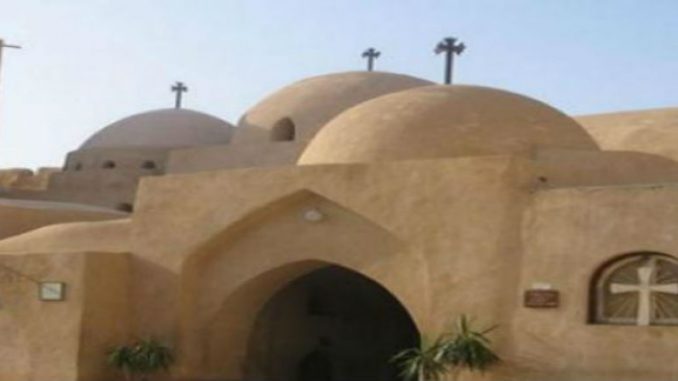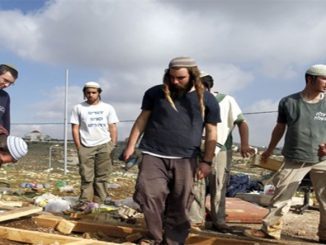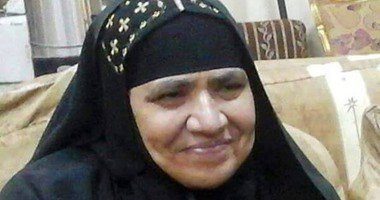
In an incident that brought the woes of one of the world’s oldest churches back under the spotlight, Egypt’s Coptic Orthodox Church said that prosecutors are investigating the death of a monk who had until recently served in a monastery northwest of Cairo where the abbot was killed in July.
Two monks — one of whom has been defrocked — are on trial for the death of the abbot, Bishop Epiphanius. The trial opened Sunday and was scheduled to resume Thursday when, according to security officials, the deceased monk was to give his testimony.
The monk, identified by the church by his monastic name Zeinoun al-Maqari, was the “confessional father” of one of the monks on trial, said the officials, who spoke on condition of anonymity because they were not authorized to brief the media.
The monk’s death was announced in a brief statement issued by the Coptic Orthodox Church. It said the cause of his death at the al-Muharraq monastery in southern Egypt remained unknown. However, security and medical officials said they could not rule out suicide. An initial examination of the body suggested that poisoning might have been the cause of death, they said.
A full autopsy to determine the cause of death was due to be performed, they said.
The body was kept under tight security in a hospital in Assiut, the nearest city to Al-Muharraq monastery where the monk served since August. The monastery was also sealed off by police and security officers who were reviewing footage from its security cameras.
The church statement said Zeinoun was transferred to al-Muharraq monastery following Epiphanius’ death. That suggested the monk may have been involved in a now-publicized disciplinary dispute between the abbot and several monks at St. Macarious, which required the intervention of the spiritual leader of the church, Pope Tawadros II.
The security officials said Zeinoun’s name also came up as a possible accomplice in the abbot’s killing during lengthy questioning of witnesses by prosecutors.
Zeinoun was one of six monks transferred out of St. Macarious monastery as part of efforts to instill greater discipline. At the time, the church slapped a yearlong suspension on the admission of novices, threatened to expel monks found to have established “illegal” monasteries and gave monks a month to shut down social media accounts. It also forbade unauthorized media interviews.
Epiphanius’ killing has shaken Egypt’s Coptic Orthodox Church, which introduced monasticism to the faith, but its monastic desert traditions had largely vanished before being revived over the past century.
The July killing took on added significance because monks were the main suspects. It also exposed a side of the church that few in Egypt — Muslim or Christian — knew existed, including the growing power and independence of monks in remote monasteries who appear to be at odds with Tawadros and the church’s central leadership.
The security officials said Zeinoun was dying when monks went to his cell in the small hours to fetch him for vespers. He was rushed to hospital but died before he arrived there, they said. A photo of him released by the church suggests he was in his 30s or early 40s.
News of Wednesday’s death broke at a time when the church was in the spotlight again.
An embarrassing video widely shared on social media networks surfaced this week, showing U.S.-based Coptic Bishop Ioannis offering Egyptian Christians in New Jersey free transportation, sandwiches, and sodas to travel to New York to cheer visiting of Abdel-Fattah al-Sisi.
He told a gathering assembled at a New Jersey church, “Come out for the sake of God, for the sake of the church and your families.”
“The buses will be free, so come, it would be a change of weather and a chance to see New York. We will also bring you sandwiches and sodas.”
Al-Sisi is in New York to attend the annual U.N. General Assembly and meet world leaders on the sidelines.



